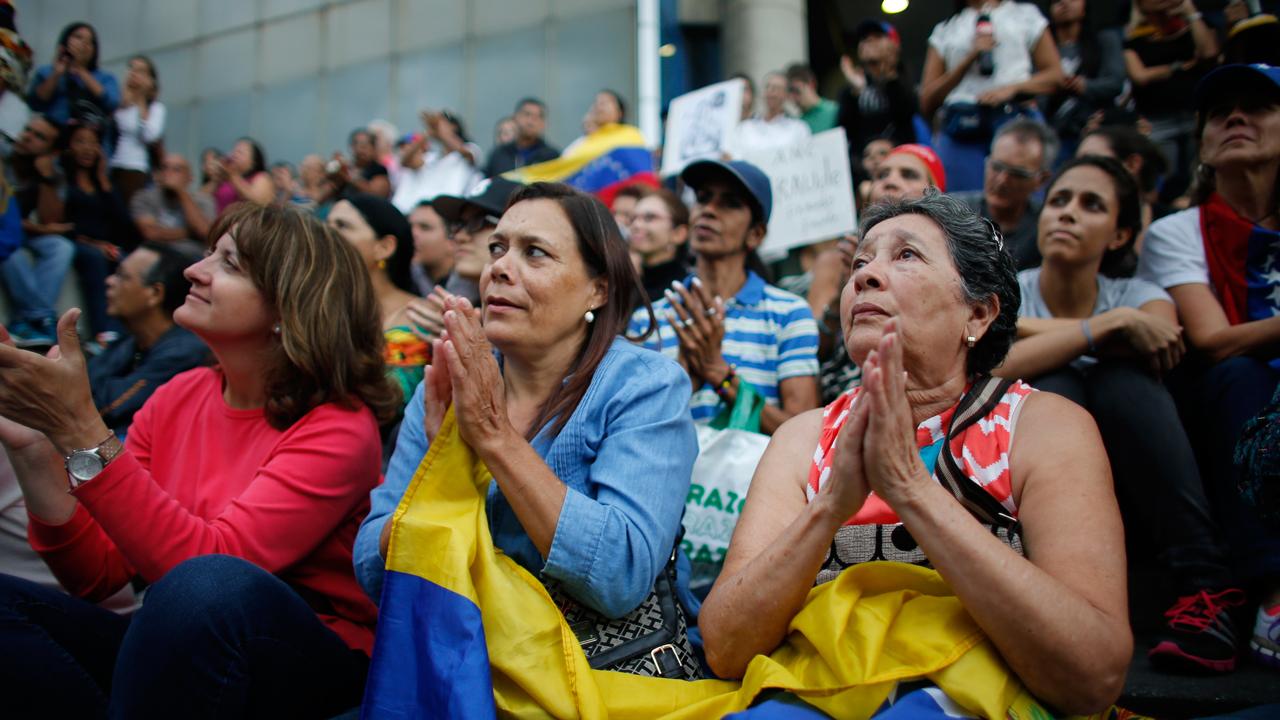Venezuela state oil firm's credit woes spread to US unit Citgo: Reuters
HOUSTON/NEW YORK (Reuters) - Washington’s recent sanctions against Venezuelan state-run oil company PDVSA have started to ensnare its U.S. unit, Citgo Petroleum, making it harder for the refiner to obtain the credit it needs to purchase crude, according to six traders and banking sources.
Fewer oil providers are willing to sell cargoes to Citgo on open credit, instead requiring prepayment or bank letters of credit to supply its 749,000-barrel-per-day refining network, the sources said.
Two sources at Canadian suppliers said their companies are no longer allowed to trade with Citgo directly, and have begun selling cargoes through third parties to avoid the credit risk.
Citgo’s three U.S. refineries in Illinois, Texas and Louisiana account for about 4 percent of domestic fuel capacity, and are major suppliers of gasoline, diesel and jet fuel. If financial troubles raise the cost of obtaining crude, its profits would be squeezed, making the company less competitive.
Citgo had remained immune from its parent’s straits until this year. But U.S. sanctions levied in recent months against Venezuelan officials, PDVSA executives and the country’s debt issuance have deterred banks and suppliers from extending even routine credit, the sources said.
Citgo’s main crude supplier is Venezuela, but the company also buys U.S. and foreign oil. It has told some providers they can charge more to reflect the added credit risk.
“We are now more conservative when dealing with PDVSA or any of its units,” said an executive from a trading firm with a long term business relationship with PDVSA.
“Banks that have refused to provide credit have a very rational thinking, they don’t want to be exposed to sanctions. It does not take too much to have banks nervous,” he added.
The U.S. government did not intend sanctions to affect existing private credit agreements at Citgo or PDVSA. Treasury Secretary Steven Mnuchin in August said “short-term financing for most commercial trade” between the United States and Venezuela, including the petroleum flow, was exempted.
Citgo declined to comment.
Venezuela’s Economy Vice President Ramon Lobo on Thursday said the government is facing “a series of difficulties” as result of sanctions, which he considered an attempt to push the country to insolvency with a “financial blockade.”
RENEGOTIATING SUPPLY DEALS
While Citgo was not directly sanctioned in August, it was barred by name from transferring dividends or distributing profits to PDVSA or the Venezuelan government. Citgo has provided nearly $2.5 billion in dividends to its parent company since 2015, according to Fitch Ratings.
That restriction raised alarms among its longterm banking and trading partners in the United States.
As a result, Citgo is “trying to renegotiate its supply terms,” said a trader from a firm that is requiring Citgo to prepay for purchases. The company is worried about a higher debt default risk as well as the sanctions.
Citgo also has other problems. Its Gulf Coast refineries are being forced to buy more crude on the open market to offset a declining flow of oil from PDVSA.
From June through August, PDVSA supplied only half the volume of Venezuelan crude it was to send Citgo under a 220,000-bpd supply contract, according to Reuters trade flows data. At the same time, Venezuela increased oil deliveries to Russia’s Rosneft to pay for loans.
Even Citgo’s 167,000-bpd Lemont refinery in Illinois, which largely processes Canadian oil, is having trouble retaining credit arrangements with its traditional providers, according to three traders from crude suppliers that are no longer allowed to sell directly to Citgo.
In August, Citgo executives traveled to Canada, as they typically do once a year, but this time sought to assure marketers in Calgary that the firm was financially stable. “I don’t think anyone was very convinced,” a source involved in the talks said.
SAVED BY THE SWISS
Citgo has a long standing agreement to buy oil on preferential terms from Switzerland-based trader Mercuria Energy, without obtaining letters of credit, according to four of the traders.
But when Mercuria is unable to provide crude to Citgo, the refiner goes to the spot market, where many of its providers demand prepayment or letters of credit to secure payment within 30 days of every cargo discharge.
The sources said traders, refiners and oil firms have been rebuffed in recent weeks after seeking letters of credit from a list of banks suggested by PDVSA and Citgo, which includes Citibank (NYSE:F), JP Morgan (NYSE:JPM), Credit Suisse, BNP Paribas, ABN Amro , and Deutsche Bank.
“This is not a credit issue, nobody thinks Citgo is unwilling to pay. But banks have to protect themselves from fines, so they typically go beyond what the sanctions require,” said a banker who has been dealing with Venezuela for years.
The banks declined to comment on specific clients.
Citgo’s attempt to address the credit problems has been to suggest suppliers mark up their prices, three traders said. But that “only transfers the credit risk from the bank to the oil provider,” one of them said.
A similar tack was used by PDVSA last year before intermediaries began requiring prepayment. In most cases, cargoes that arrive in Venezuelan ports now wait for weeks before a bank transfer is received.
Minister Lobo and traders said PDVSA has started talks to change its preferred currency to euros from dollars for some business relationships, an idea that has failed in previous years. President Nicolas Maduro last week said the OPEC-member could also use China’s yuan, India’s rupees, Russia’s ruble and Japan’s yen.
Reporting by Marianna Parraga in Houston and Catherine Ngai in New York; additional reporting by Nia Williams in Calgary and Corina Pons in Caracas; Editing by David Gregorio




















